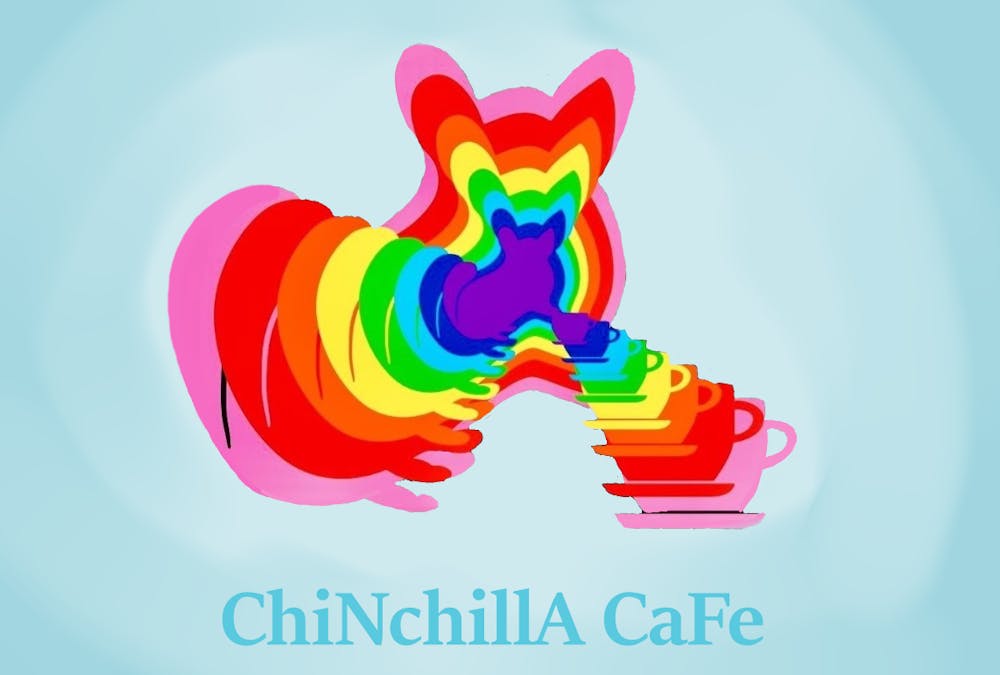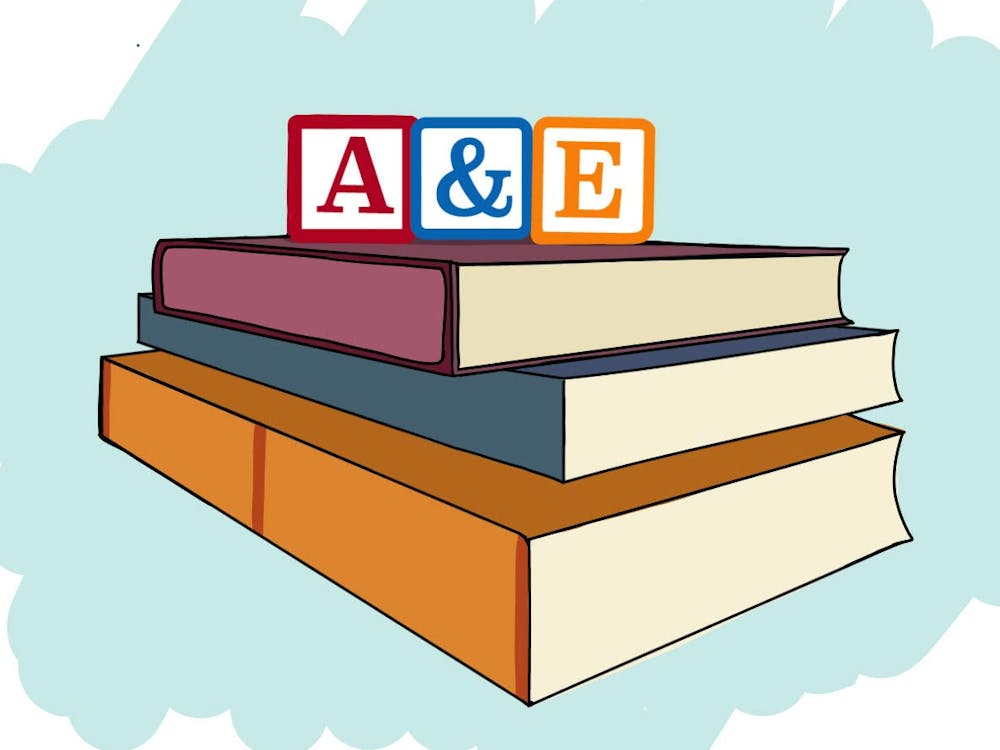Chinchilla Café is not exactly a café, but they do have chinchillas — and so much more. A Google search for “Chinchilla Café, Charlottesville” will yield tour dates of bands, Reddit pages and local news articles, but none will deliver an address you can quickly plug into your GPS by itself. That’s because — unlike other popular music venues in Charlottesville — Chinchilla Café is a DIY venue run out of the living room of four activists’ shared home.
In short, Chinchilla Café is a three-bedroom, one-bathroom house that hosts frequent events for live music, focusing mostly on local bands but occasionally inviting traveling bands to play as they pass through the area. At shows, attendants are invited to dance, connect with one another and of course, socialize with the chinchillas living in the house. The organizers’ focus, however, goes beyond introducing people to chinchillas and providing a venue for a fun night out.
Lane Rasberry has been one of the residents of the house since the beginning — in the professional world, Raspberry serves as the Wikimedian in Residence for the School of Data Science, supporting them in projects related to Wikipedia. Along with his housemates, Rasberry works to organize shows that feature both the creative talents of the visiting bands as well as presentations made by non-profits.
“At every concert we have a nonprofit activist partner that shares what it is that they're doing,” Rasberry said. “[We are] trying to make people more mindful about social and ethical issues in Charlottesville and the region.”
One of the goals of Chinchilla Café is to create a welcoming environment for LGBTQ+ individuals — the non-profits that present often reflect that mission and advocate for various LGBTQ+ causes.
“We've had Armed Trans Women — a safety and self defense group for trans women — [and] Gender Affirming Closet, a student organization based out of the University medical school that does clothing exchanges,” Rasberry said.
Many other types of non-profits have been represented at the venue in the past as well, including advocates for drug safety, animal justice groups, food justice organizations, sexual assault relief organizations and more.
“If anyone has a nonprofit organization that could use some attention, then they can come present,” Rasberry said. “We want to combine the fun of the event with giving some time to nonprofit partners for the causes.”
Third-year College student Maggie Mooney, who knows the residents of the Chinchilla house through involvement in local activism, echoes the sentiment that these spaces that intertwine activism and fun are vital.
“I think [LGBTQ+] creative spaces are incredibly important for community and self-expression, especially at a time when attacks on our existence and flourishing are so widespread,” Mooney said.
Beyond its mission to highlight different social causes in the area, Chinchilla Café serves the Charlottesville area through its creation in the image of a community center.
“As Charlottesville is growing, [the city is] increasing the density and doing all this redevelopment,” Rasberry said. “You can't continually increase the population of Charlottesville without the city eventually investing in community spaces. And there's no community space to do these kinds of events.”
While Chinchilla Café fulfills the role of a community center, Raspberry said that it alone cannot withstand the growing population of Charlottesville and its need for such a space. While Rasberry plans to continue organizing shows and activist presentations at the house, he said he hopes one day that the city will offer more spaces similar to Chinchilla Café.
“What I wish could happen is that Charlottesville dedicates community spaces where people could go and meet up and not be subjected to advertising or have to buy anything,” Rasberry said. “As soon as you have a profit motive in a space it changes the vibe, and sometimes you can't have activist ideas. You can't establish relationships in a commercial space that you can do in a space that's only for community.”
Mooney said that Chinchilla Café stands out among other popular venues in the Charlottesville area because it is donation-based rather than existing in an “advertised business space,” all qualities that contribute to its identification as a DIY venue.
Chinchilla Café recommends a $10 donation at the door, 100 percent of which goes to the bands. However, no one will be turned away for lack of funds.
“The bands are the biggest donors. The bands are the ones that are giving the most because practice time, travel time and equipment [are all] expensive,” Rasberry said.
The relationship between the bands in the venue goes beyond money though, as the emphasis of the organizers is to create a space where people contribute to their communities beyond capital exchange.
“My own personal contribution is making structured data for all the bands,” Rasberry said. “We take pictures of the bands and post them with something called a free and open copyright license.”
In doing so, bands are able to access and use photos from their performances for their own publicity. So, as the bands help the Charlottesville community and the café by performing, the café and the community support the bands through their contributions.
The underlying message of Chinchilla Café is community, and according to Rasberry and Mooney, it is spaces like Chinchilla Café that allow for actual connection and social change.
“Communities can help other people and it doesn't take a heroic effort to do it,” Rasberry said. “Anyone can. Anyone's good enough to help their neighbor.”
For more information on Chinchilla Café’s upcoming events, visit their Instagram page @chinchilla_cafe_cville, and direct message the page for the venue’s address.






